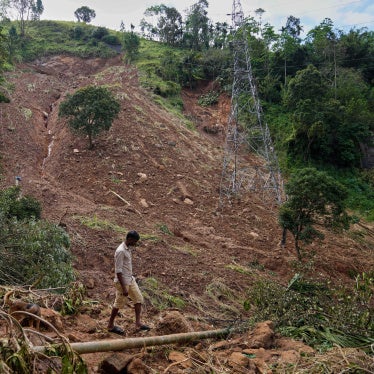Burmese President Thein Sein burnished his perception as a reformist last week by suspending one of the country's largest -- and potentially most destructive -- foreign investment projects. The Myitsone hydro-electric dam, the largest of seven dams to be constructed by the Beijing-controlled China Power Investment Corporation, would have flooded an area of more than 700 square kilometers, and displaced tens of thousands of villagers in northern Kachin State, close to the state capital of Myitkina. Several thousand have already been displaced by the first dam, built to provide the electricity for the larger ones in the series.
The dam project, affecting the Irrawaddy River, Burma's largest, was fast becoming one of the country's most contentious national issues. Its suspension goes against decades of state-directed resource grabs for Burma's neighbors and energy companies: logging, fisheries, oil and gas, and mining concessions sold off to China, Thailand, India, and other Asian and Western corporations.
The past few weeks did see some uncharacteristically open debate on the dam project in Burma, including public dissension from senior ministers. While some in Burma's parliament called for the project to be reviewed, the Electric Power Minister U Zaw Win, prior to the president's announcement, insisted: "we will not back down just because environmental groups are against it ... we will not back down now in fact we are to go ahead." Democracy leader Aung San Suu Kyi joined prominent artists and writers at an art exhibition about the Irrawaddy River, and the regulated Burmese media debated it. There has not been open discussion and high-level disagreement, at least not publicly, on an issue like this in Burma for a long time.
It's less clear that the suspension represents Thein Sein's newfound support for the environment or a more open society. Kachin environmental groups and community leaders in the dam areas and others have done exemplary work in documenting the project and its effects on Kachin State, which has encouraged more overt community activism in recent years. A recently leaked 900-page environmental impact survey on the dam project, produced by Burmese and Chinese government experts, was damning in saying the project was ill-advised. And it didn't help matters that the Myitsone dam site is situated just 100 kilometers from a major earthquake fault line.
The breakdown of the 17-year ceasefire with the Kachin Independence Organization in June was another headache for the government. The dam project had become a flashpoint for the renewal of armed conflict between the Burmese army and ethnic Kachin rebels that has so far displaced more than 30,000 civilians.
Many important questions remain: Is the Myitsone project on its way to being cancelled or is the government just waiting for the outrage to die down? Will the local community have a role in future discussions about the project, such as whether the mega damn at Myitsone will be reworked into a number of smaller dams? Did the Chinese agree to the suspension, and was it a temporary trade-off because China wants to ensure the strategically more important oil and gas pipelines? The answers to these questions are not just crucial for environmental protection and foreign investment in Burma, but for whether the Burmese government's claims of being more open and accountable are for real.
Meanwhile, there are more than enough energy projects in Burma that have potentially disastrous community and environmental and human rights impacts: the hydro dams on the Salween River, including the pipelines, massive Chinese agri-business ventures in the north that involve land-grabbing and semi-feudal working conditions, the Dawei (Tavoy) port project and industrial park in southern Burma, and the Kaladan River and road project being pursued by Indian firms in western Burma. Add to this the widespread practice of the Burmese military to seize land for their own business interests, or to hand over to military connected companies, and there are more than enough abusive practices that adversely affect both ethnic minorities in conflict areas and the general population. These and many more environmental and human rights abuses have been well documented by community groups for several years.
Overall, people in Burma should be heartened by the suspension of the dam project. It is tempting to believe it signals a significant shift in the autocratic, plunder-and-profit mentality of the Burmese authorities. But it is doubtful. If it does lead to more open community discussion of development projects, and more regulation and oversight, it is a good thing, but don't expect the government's rapacious commercial practices to reform in a major way anytime soon. If the Myitsone decision is to have far-reaching consequences for sustainable development in Burma, it is up to Burma's leaders to ensure that their decisions about business are about people too.
David Scott Mathieson is a Senior Researcher in the Asia Division of Human Rights Watch.







